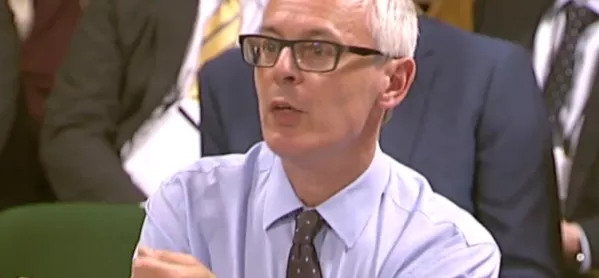The Department for Education’s top official has admitted that it is impossible to prove that forcing schools to become academies offers better value for taxpayers’ money than leaving them with local authorities.
Permanent secretary Jonathan Slater was pressed repeatedly by MPs this morning on the evidence behind his department’s academies policy.
Although the government recently softened its policy on forcing schools to become academies, schools that fail their Ofsted inspections can still be required to convert.
At a Commons Public Accounts Committee meeting today, Labour MP Gareth Snell asked Mr Slater: “Is there any evidence that rescuing under-performing schools via forced academisation provides better value for money than a rescue package for them inside the local authority?”
He added: “We could have a situation where we’re spending vast sums of money to transfer schools over to academy systems without really getting any additional educational output from those schools.”
‘De-centralising power to schools’
Mr Slater responded: “It’s pretty difficult, isn’t it, looking at the counter-factual [of] what would have happened [with no conversion]?
“We can see simple facts that seven out of 10 sponsored academies...are now ‘good’ or ‘outstanding’. Would it have been possible to do that in a different way?”
Mr Snell then asked Mr Slater for “quantifiable, tangible evidence” that academisation provided better value for money for “inadequate”-rated schools than local authority-based support.
Mr Slater said: “I can’t prove that...I suppose my point is that nobody could.”
But he added: “Turning LA-maintained failing schools into academies has largely succeeded in turning those schools around.”
Pressed again, he said there was “international evidence” that turning schools from “good” to “great” involved de-centralising powers to those schools.
Increasingly, the purpose of conversations was to help needy schools to “pair up” with schools that could help them, he said.
But the committee chair, Labour MP Meg Hillier, said: “There are other ways of pairing up - federations, families of schools, school improvement areas.”




